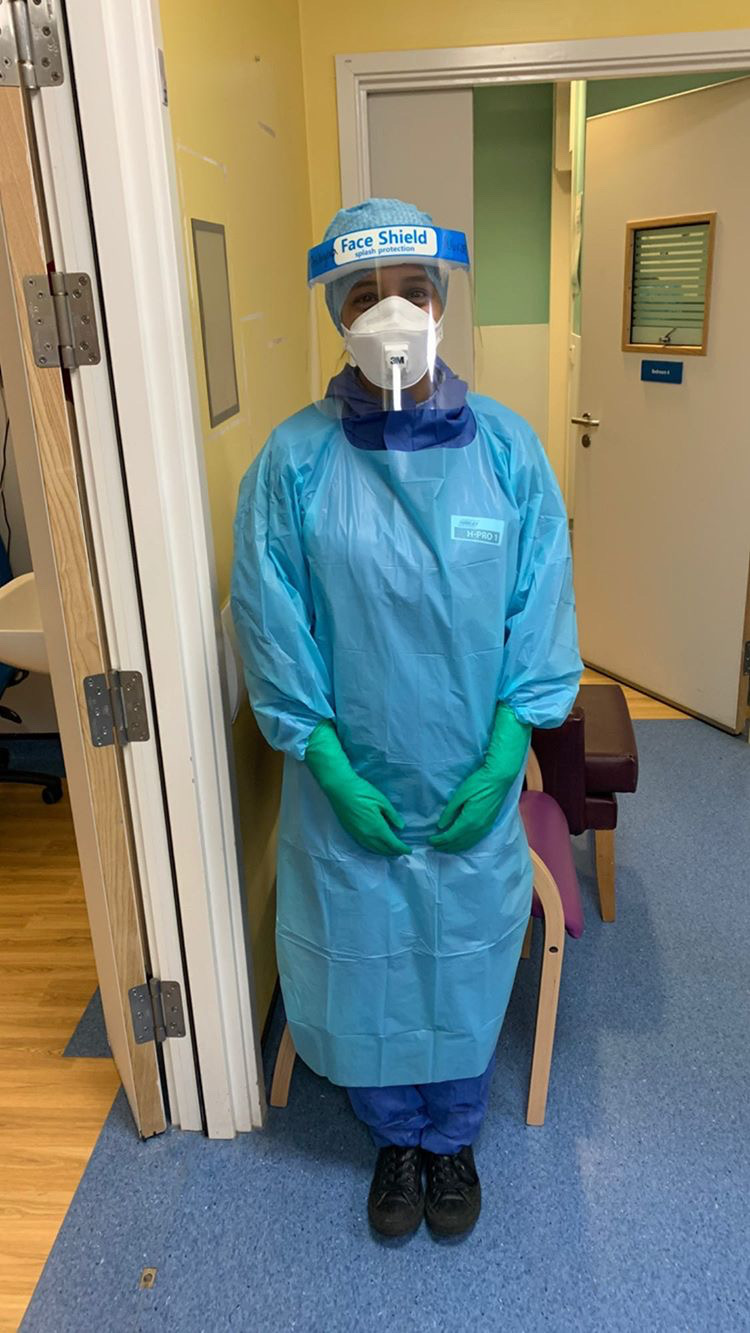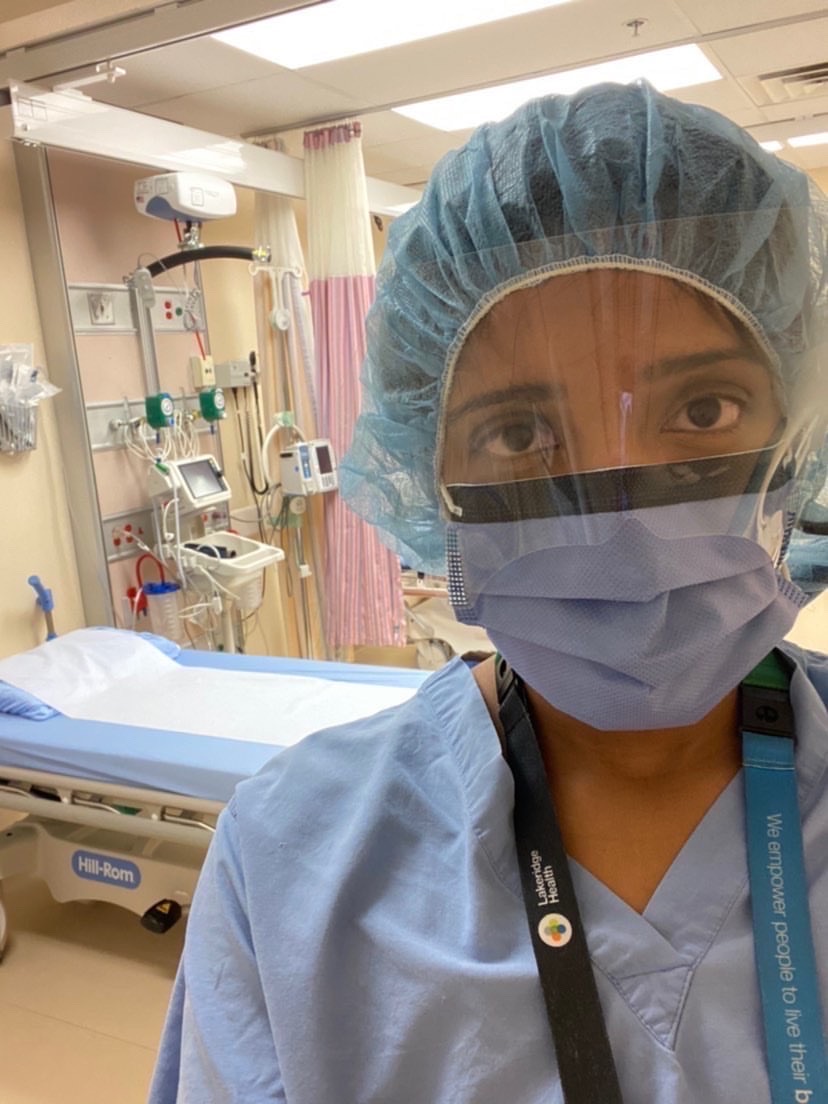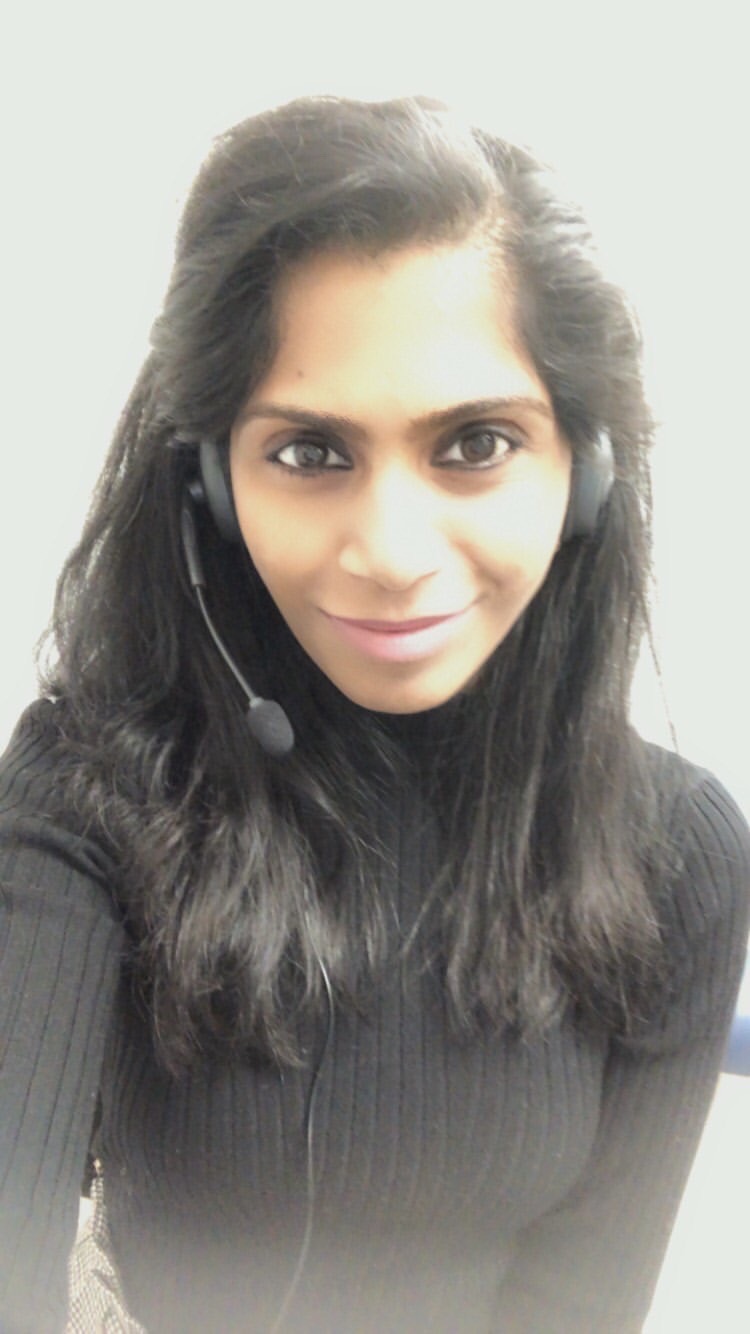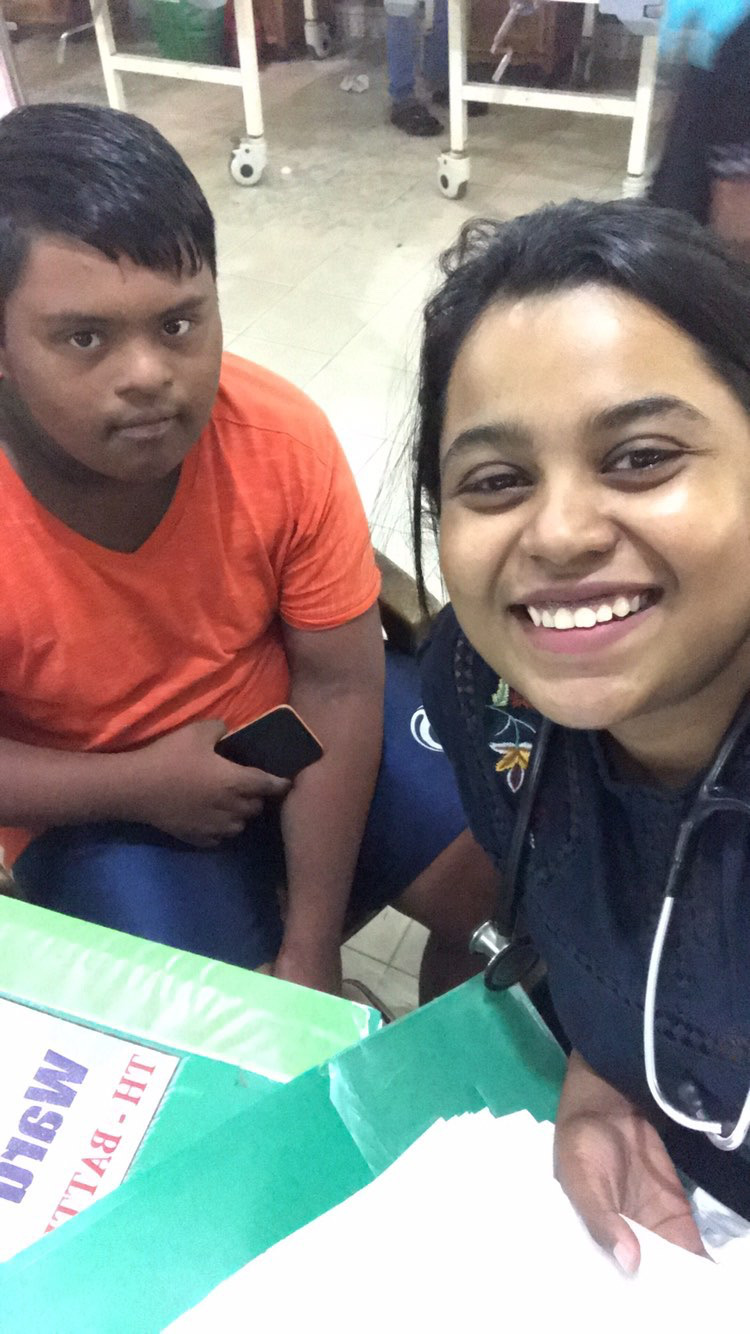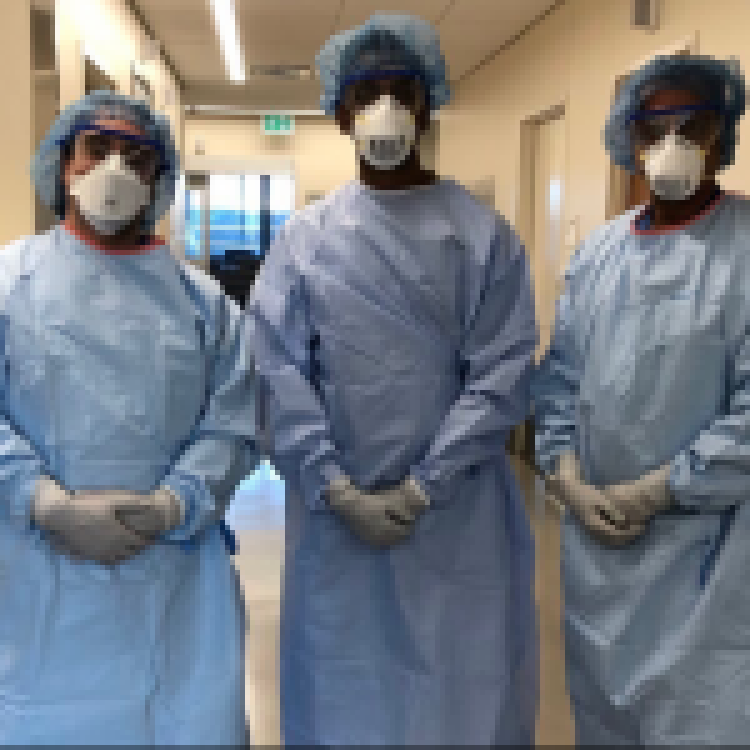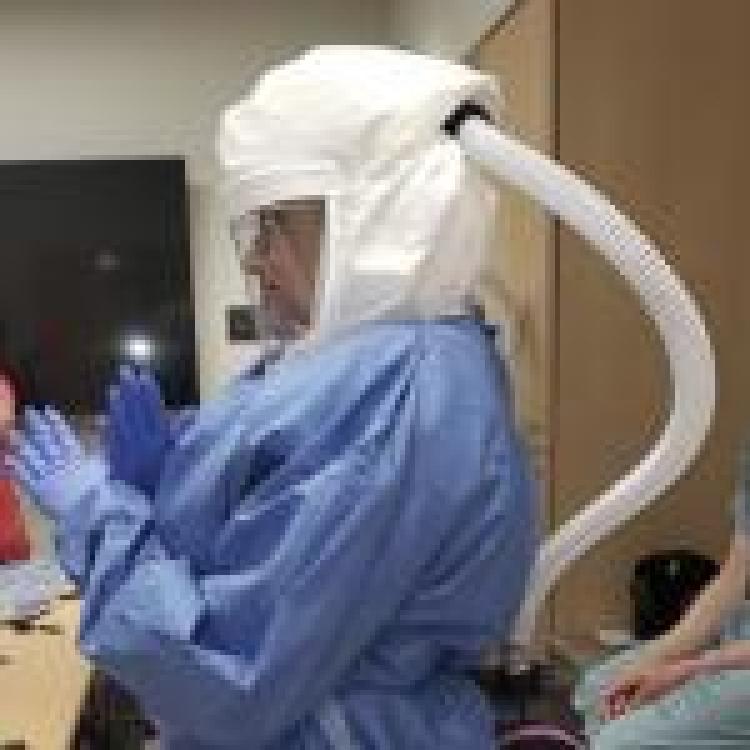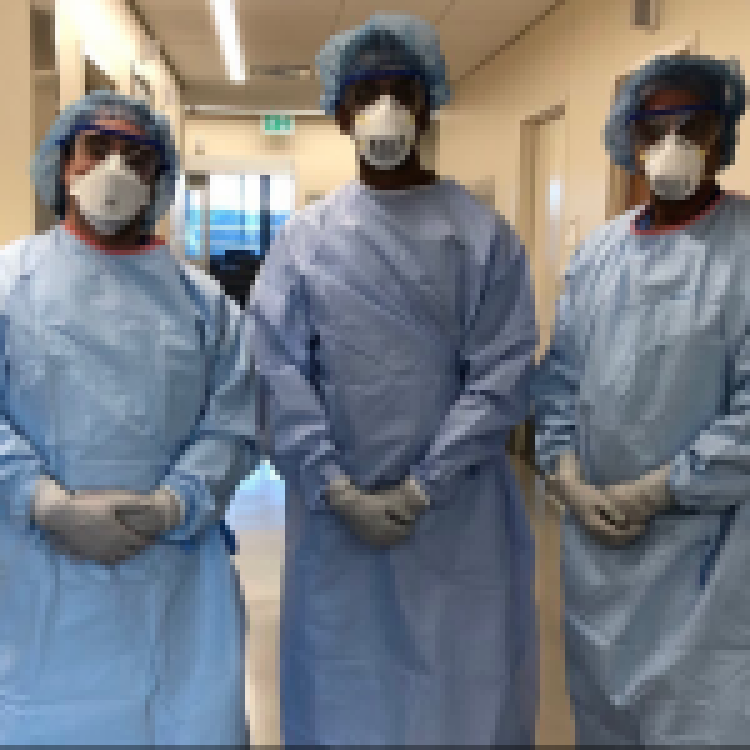With healthcare workers across the globe working to tackle the coronavirus pandemic, we look at some of the Tamils on the frontlines of the battle to save lives.
From nurses and doctors to our paramedics and porters, every single contribution is invaluable. And alongside thousands of other workers, the Tamil community has been actively involved in efforts to fight the pandemic.
We will be highlighting stories of healthcare workers around the world who are working to keep us all safe.
United Kingdom
Thibyaa Mahasivam, Paediatric Intensive Care Nurse, London
Before going to nursing school you choose the field of nursing you want to study. I chose Paediatrics. I thought this meant was that I would never have to take care of an adult in my nursing career, ever. But then COVID came.
Like me, many others wondered what was going to happen in the world of paediatrics. This wasn’t stepping out of our comfort zone...this was LEAPING out of our comfort zone. All admission onto PICU (unless an emergency) was put on standstill. We started to prepare ourselves for the world of critically ill adults.
Not one of us hesitated to step forward when the biological war came knocking on the ward door. Yes many of us complained, we had every right to - this was how we were able to unload our stress and worries. But when given the choice to relocate elsewhere the vast majority of us chose to put our lives on the line.
In a matter of days, the Intensive Care Unit transformed to accommodate adults. Nurses went to AICU to learn the skills they needed. Countless emails flooded my mailbox telling me: how to resuscitate an intubated adult with coronavirus; what medications were commonly used in adults; what the ‘normal’ is; how to protect myself and keep myself safe before I treated the patient; the list continues. A multitude of simulation classes were put into place. There was so much information to be processed but the nurses continued. The speed at which these nurses adapted was phenomenal.
Taking care of an adult is very different to taking care of a child. But here I stand with my coworkers doing something I thought I’d never do.
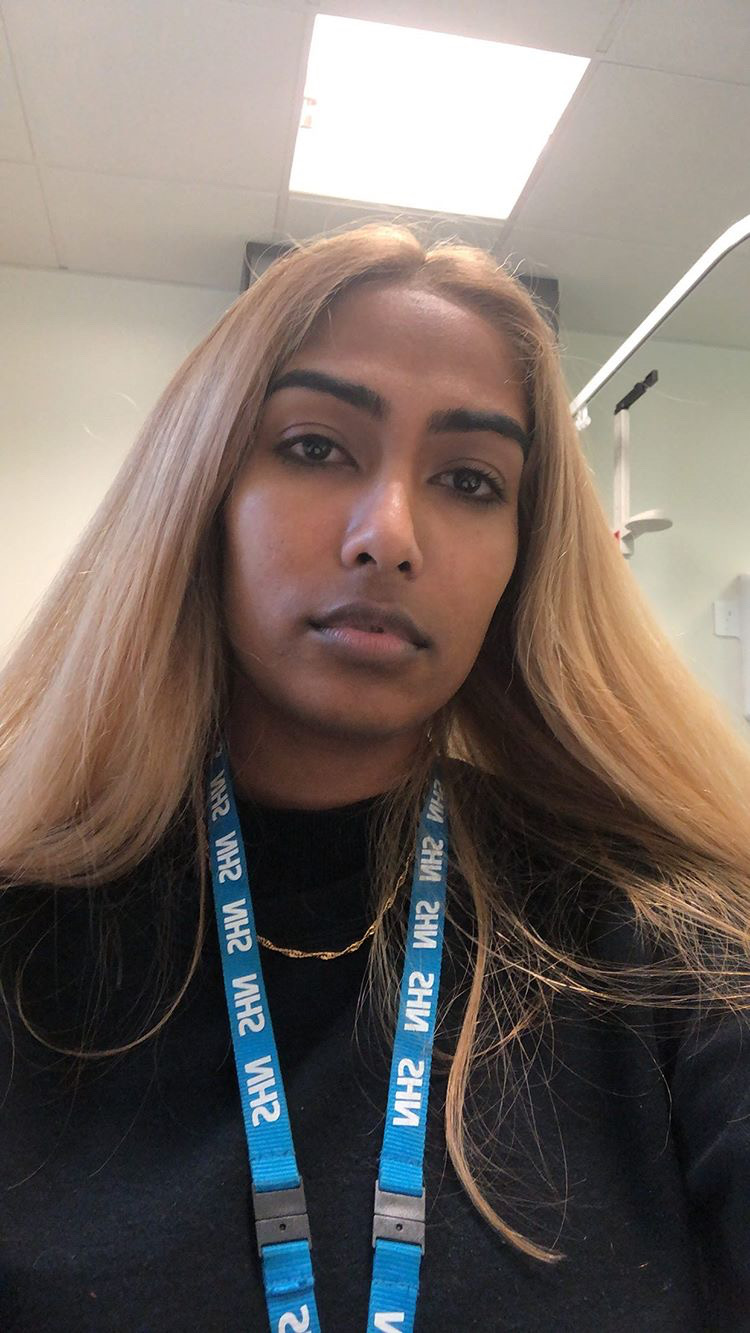
Meenakshi Bala, Doctor, Birmingham
I’m in my second year of being a doctor so it’s been a huge change to a work-life I was just getting used to. Working on a respiratory ward in the biggest trust in the country we were one of the earliest to get hit by COVID-19. More than half my team have been off sick at some point with one of them being treated as an inpatient.
I’m generally an emotional person and I think it makes me better at my job, however, this has been unbearable at times. During our first week on our new rota which consists exclusively of 12.5hr shifts, a doctor who has over 8 years more experience told me frankly, “I’m not coping emotionally with this.” The medicine is straightforward supportive care which offers little room for us to improve outcomes, patients spend most of their time alone since visitors aren’t allowed and I’ve had countless conversations over the phone to tell families their loved one is deteriorating or has passed away.
It is undeniably a difficult time for everyone which is why more than ever it’s crucial to support each other as a community and society in the ways that we are able to. That looks like showing gratitude and practical help to our essential workers, preventing the spread of fake news, keeping in touch with loved ones virtually and ensuring we do what we can to keep ourselves healthy.
When we all act as a community we not only limit the spread of this virus but also help each other get through its consequences.
Canada
Sahaana Rangarajan, Doctor, Toronto
Working in the emergency department during this pandemic has definitely been a challenge to say the least. In addition to the surge of very sick COVID-19 patients requiring inpatient care, we still need to manage all other emergencies which we encounter on a day to day basis as well. I am lucky to work with an amazing team of healthcare professionals who are all extremely motivated and dedicated to patient care despite the increased risks and personal safety concerns. We are struggling with a PPE (personal protective equipment) shortage which is concerning however we have been creative in coming up with solutions to preserve and recycle the equipment which is keeping us safe while working on the frontlines. We are grateful that everyone is doing their best to social distance and stay at home while we try our best to help those who’ve been affected.
Durgaa Rajendran, Doctor, Toronto
As a result of the COVID-19 crisis, many clinics (including our own) have restructured and are now providing care via TeleMedicine. Although I am not at the front line per se, our role as family physicians is to help patients stay away from the Emergency Room as much as possible for two reasons: to decrease patients’ exposure of contracting COVID-19 and other diseases, and to help relieve the stress on our healthcare system. We do this by helping patients with recent travel and/or infectious symptoms and determining whether they can be monitored at home, require COVID-19 testing or need to seek urgent care. We also continue to provide care for our own patients, including chronic disease management.
Please be socially responsible and stay home. It may be boring and isolating, but your choice to stay home will help prevent spread. Help your fellow frontline heroes fight this war! We can do this!
North-East
Ann Marshall, Doctor, Batticaloa
Being a mother of a 1-year-old, and walking into the PCU during my on-call, knowing that I am putting myself and my little one at risk is a little overwhelming, here at the Batticaloa Teaching Hospital. The general public also hides their travel history, due to the stigma they get and the fact that our hospital is under-equipped with PPE, it’s all a little scary. We the doctors here our understaffed and exhausted but yet everyday I wake up and get to work to serve my people.

